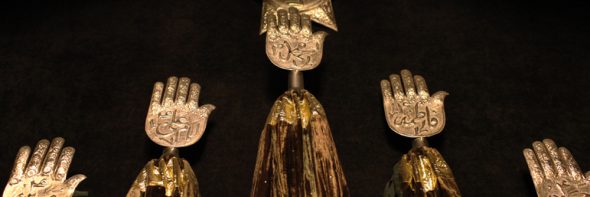
By Aman Ali
Note: This post is talking about Sunnis and Shi’as, so before you comment on this post, remember the wise teachings of Mary J. Blige: “We don’t need no haters, just try to love one another.”
When I was 10 years old, I asked my dad what was the difference between Sunni and Shi’a Muslims.
“Shi’as are much better looking than us,” he said.
Until college, I had little or no encounter with Shi’a Muslims growing up let alone did I know anything about what they believe in. So any opportunity I get to hang out with them, I jump on because they’re a vital community to talk about as we highlight Muslim communities across the country.
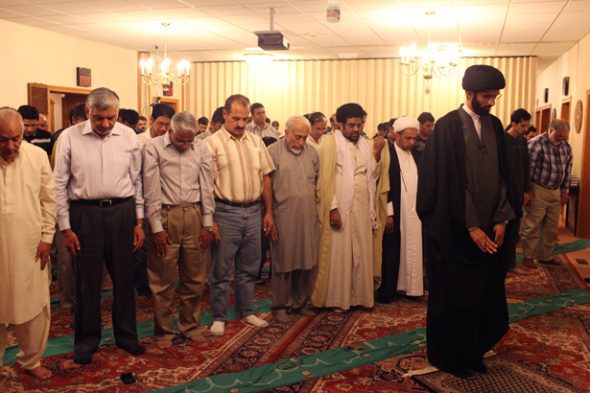
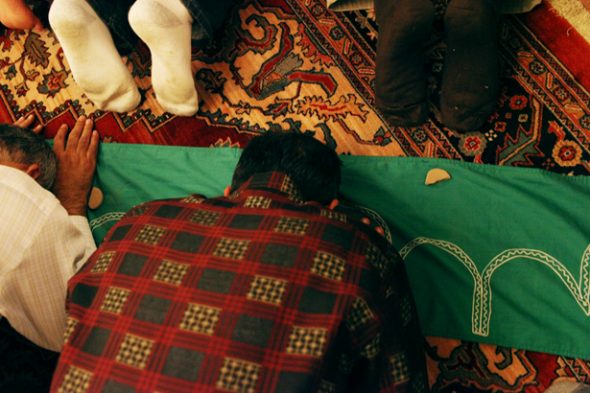
There are roughly ten thousand Shi’as that live in the Chicago area and 3-4 mosques. They have a few cool Islamic schools in Chicago too, and I can’t wait to perform standup for one of them on Oct. 10.
For our 30 Mosques trip, we checked out BaitUl Ilm, a funeral home converted into a Shi’a mosque in a quiet Chicago suburb. It’s a temporary place for the worshippers here – next door is their simple yet ravishingly designed mosque that they hope to finish construction on by next year.
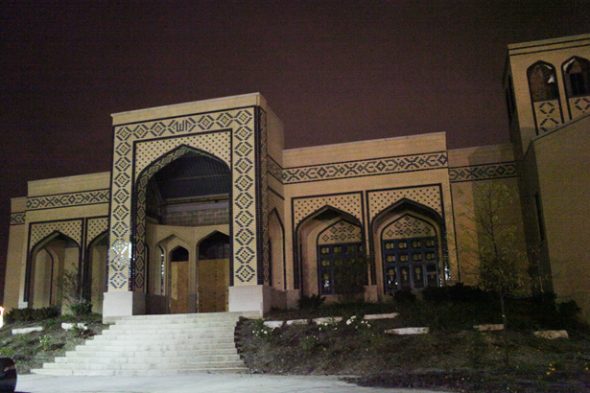
What’s cool about BaitUl Ilm is how plugged in they are with the rest of the Chicago Muslim community. The Council of Islamic Organizations of Greater Chicago is a huge local umbrella organization of different mosques and Muslim groups. BaitUl Ilm is the only Shi’a member of it. The mosque also regularly sends its imams to Sunni mosques for talks and leading prayers and Sunnis do the same.
“Not only should we be learning how to maintain our Shi’a identity, but we should be doing so while living in harmony with the other members of the Muslim community here,” said Imam Sulayman, one of the religious leaders here at the mosque.
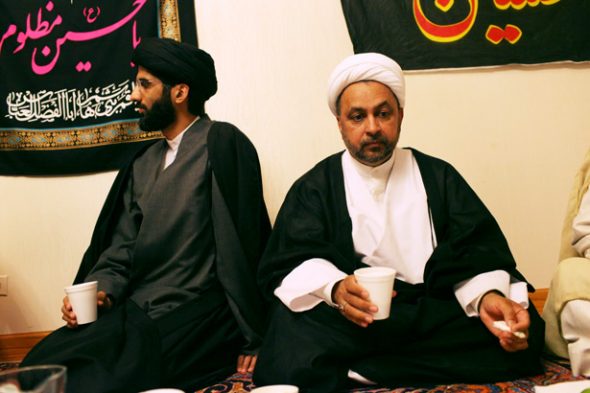
The imam wore the black turban and robe designated for Shi’a clerics. He’s a youthful guy who greets me with a soothing tenor tone. I broke my fast with him among the other congregants in the mosque and took note of a cultural display on the wall that the mosque made to pay respect to some of the most revered leaders in Shi’a Islam.
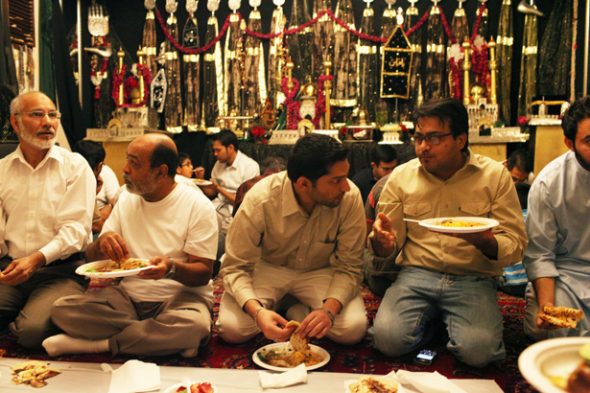
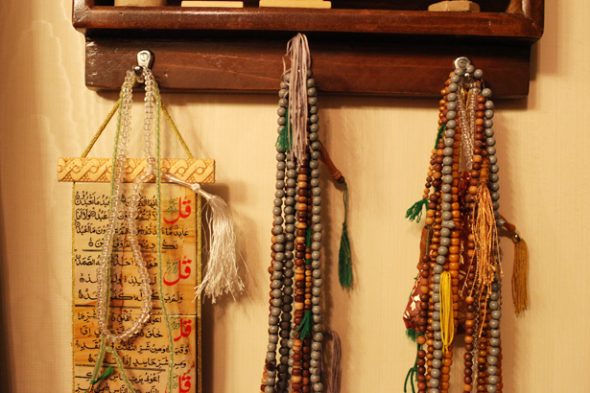
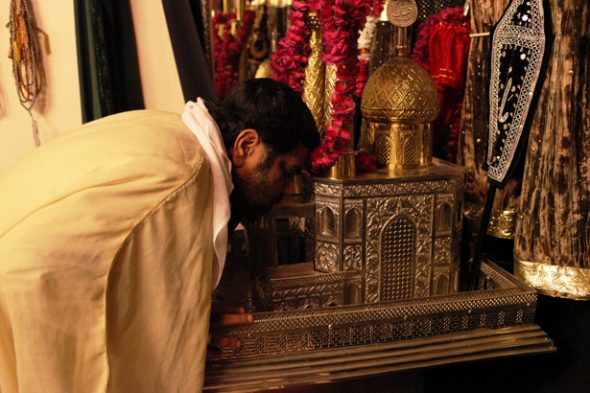
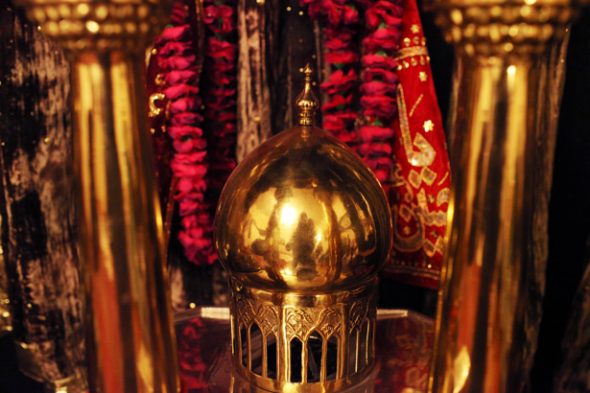
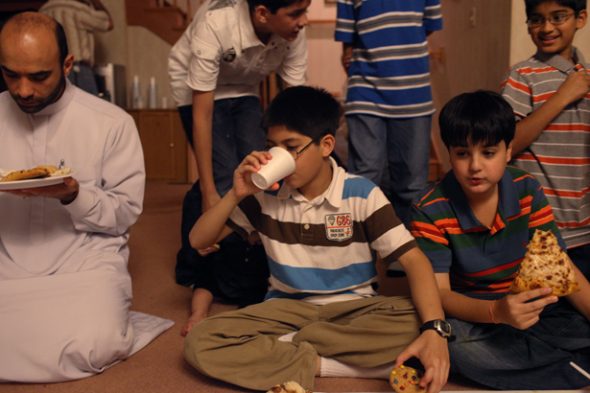
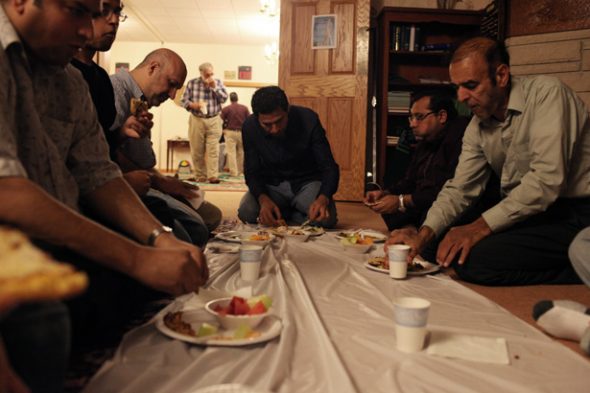
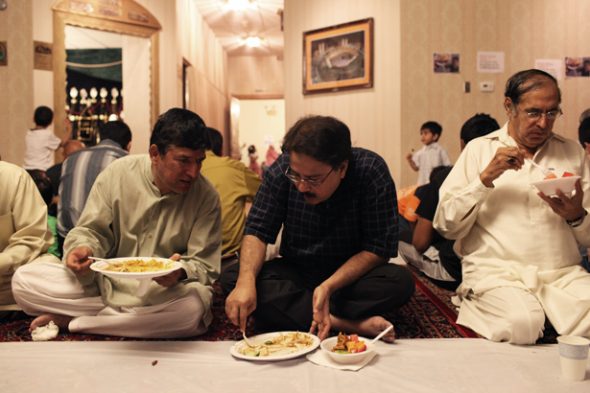
Afterwards I chatted with the Imam and other congregants on a wide variety of subjects. I think even though Shi’as and Sunnis may have different approaches to practicing Islam, we sometimes fail to realize we face similar socio-political issues just living in this country. With all the talk about the opposition to mosques in New York City, Murfreesboro, Tennessee and even Sheboygan, Wisconsin taking up my attention, I knew little about a nearby Shi’a mosque here in Chicago that is having issues too.
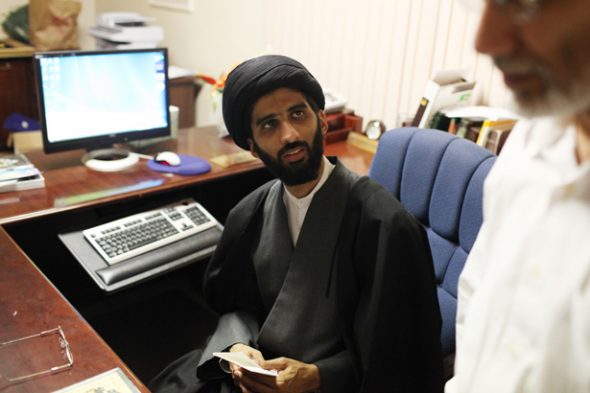
The Imam is well versed in American history and said what worries him is the direction religious discourse is headed in this country. He compared presidential candidate speeches given by John F. Kennedy Jr., a Catholic, in the 1960s and Mitt Romney, a Mormon, during the past election cycle. Both candidates were scrutinized for their faith because the American electorate traditionally elected Christian Protestant leaders
Kennedy dealt with the issue by dismissing the concerns and saying his faith had nothing to do with how he’d govern (“I am not the Catholic candidate for President. I am the Democratic Party candidate for President who also happens to be a Catholic”). Romney, on the other hand, had to go on the defensive and basically explain his belief system to the public (“What do I believe about Jesus Christ? I believe that Jesus Christ is the son of God and the savior of mankind. My church’s beliefs about Christ may not all be the same as those of other faiths. Each religion has its own unique doctrines and history.”)
That’s what’s happening to us Muslims, Sunni or not. Our mosque projects are getting protested and our leaders are under intense scrutiny and forced to explain random out-of-context statements made years, if not decades ago. So rather than trying to wedge ourselves on the differences between Sunnis and Shi’as, we Muslims need to be there for each other. Like I said before, there are only 6-7 million of us in this country and we don’t have the luxury of dividing ourselves.
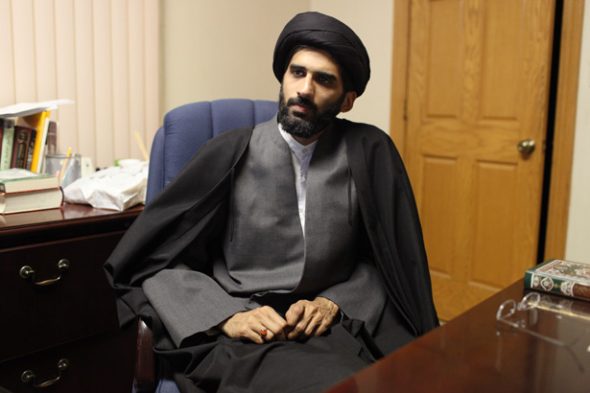
The imam said what we Sunnis and Shi’as should be doing is promoting a more pluralistic Muslim community, instead of arguing and trying to convert each other. He compared the type of Muslim community he’d like to live in to all the awesome halal food restaurants we have in New York (he must know how to get my attention, hehehe).
“You not only have halal Arab or halal Indian food, but you also have halal Thai, Chinese and Mexican food,” he said. “And then when you travel somewhere else that doesn’t have it, you begin to crave the choice from all those types of food, even if you don’t like eating all of them. Similarly, I’d rather be living in a Muslim community where Sunnis, Shi’as, Sufis, Salafis and other groups are living among one another.”
All that talk with the Imam made me hungry… for hanging out with people like him more often.